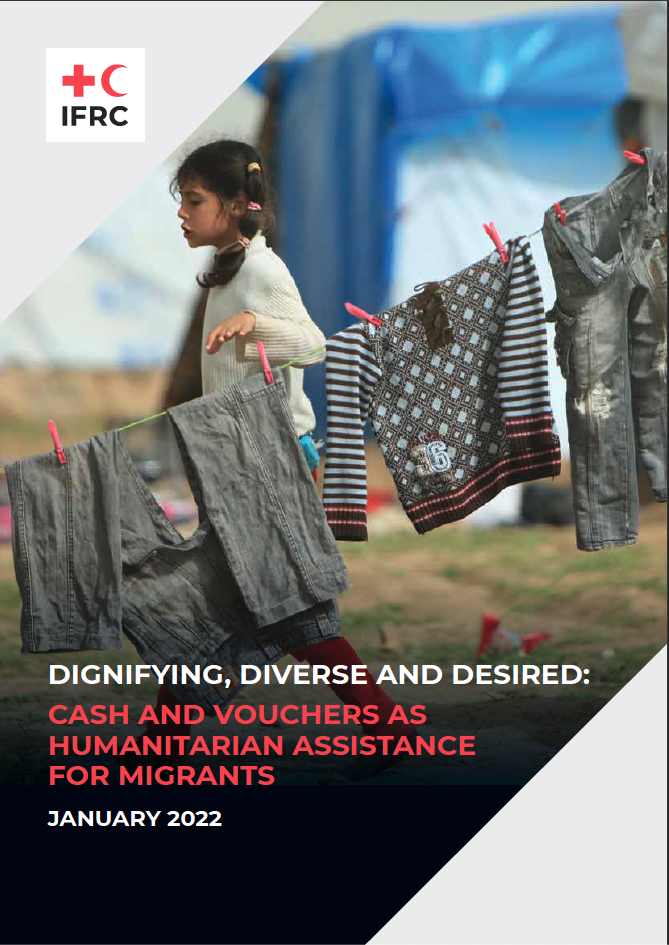Dignifying, Diverse and Desired-Cash and Vouchers as Humanitarian Assistance for Migrants

Over the past decade, Cash and Voucher Assistance (CVA) has been increasingly recognized as a dignifying modality of assistance when seeking to alleviate the suffering of the most vulnerable, offering choices to affected communities and being more cost-effective and time-efficient in many scenarios. Yet, the modality still faces acceptance challenges when its use is explored to attend to migrants. As the International Federation of Red Cross and Red Crescent Societies (IFRC) looks to scale up its CVA to be used in at least 50 percent of all its humanitarian assistance, it is seeking to identify and address those challenges, as well as promote enablers for the use of CVA.
This report includes a baseline review of the use of CVA in the IFRC’s past and current operations assisting migrants, finding that in a 42-month period between 2018 and 2021, CVA was used in 25 percent of the IFRC’s emergency responses assisting migrants. This report then highlights over 35 diverse examples of CVA by the National Red Cross and Red Crescent Societies to attend to migrants, exemplifying the scope of the modality in different migratory responses. Following key informant interviews with sectoral experts on CVA and on migration, as well as engagement with affected communities through user-centric consultations, this report also sets out some key findings on the use of CVA in migratory contexts, along with opportunities, barriers, and risks, illustrated by some good practices or experiences shared by National Societies.
